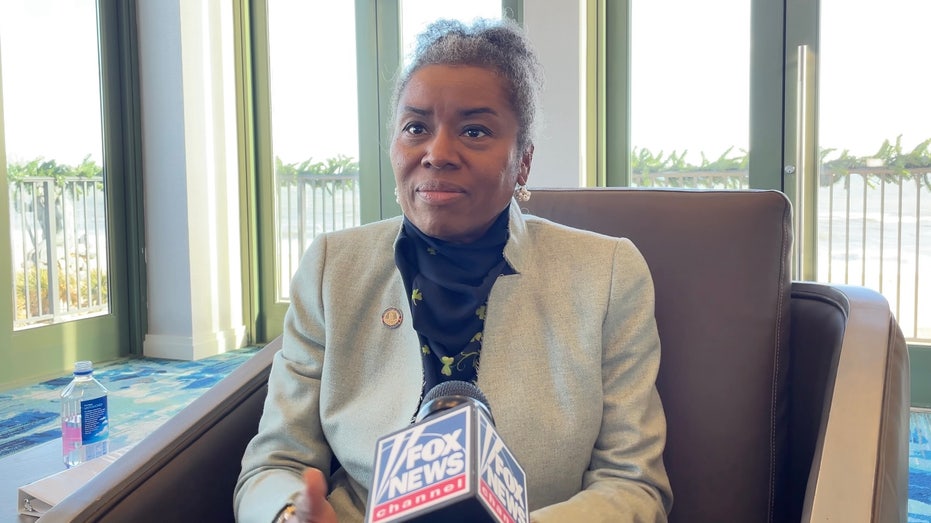Pakistan jails 25 Imran Khan supporters over attacks on military sites

Military court convicts civilians involved in 2023 unrest, with rights groups slamming ruling as ‘intimidation tactic’. Pakistan has jailed 25 civilians over attacks on military facilities that followed the arrest of former Prime Minister Imran Khan in 2023. The military’s public relations wing confirmed the ruling on Saturday, stating that a military court had handed down sentences of between two and 10 years of “rigorous imprisonment”, with 14 facing a decade behind bars. The statement did not specify the charges, but referred to acts committed by Khan’s supporters, who stormed military premises and torched a general’s house during the unrest in May 2023, as “political terrorism”. It said the ruling was “a stark reminder … to never take law in [one’s] own hands”. The military said others charged over the violence, which killed at least eight people, were being tried in anti-terrorism courts and justice would only be fully served when the “mastermind and planners” were punished. Amnesty International called the ruling “an intimidation tactic, designed to crack down on dissent”. Politically motivated Former cricket star Khan served as prime minister from 2018 to 2022, when he was removed by parliament in a no-confidence vote, blaming the then-head of the powerful military establishment for his downfall. Advertisement The 72-year-old was imprisoned for days in May 2023, then again three months later and has remained in jail since, facing a parade of court cases he claims are politically motivated. Meanwhile, his Pakistan Tehreek-e-Insaf (PTI) party was hit by a sweeping crackdown, with thousands of grassroots supporters and senior officials arrested. Khan was barred from running in elections in February of this year, which were marred by rigging allegations. PTI defied the crackdown to win more seats than any other party but was shut out of power by a coalition of parties considered more amenable to military influence. Last month, protests and unrest gripped the capital Islamabad again as thousands of PTI supporters attempted to occupy a public square on the doorstep of parliament. Saturday’s ruling came days after Khan was indicted by an anti-terrorism court on charges of inciting attacks against the military. Adblock test (Why?)
Governments and banks once mocked Bitcoin. Now they want in on it

Bitcoin has proven to be one of the best-performing assets in modern history. The value of the cryptocurrency has increased some 1,000 times over the past decade, far outpacing US stocks and real estate. Buoyed by United States President-elect Donald Trump’s crypto-friendly stance, Bitcoin’s record rally hit a new high of $107,000 on Monday after the Republican reiterated his intention to create a Bitcoin strategic reserve. Bitcoin, the first decentralised digital currency, was invented by the pseudonymous figure Satoshi Nakamoto in the wake of the 2007-2008 global financial crisis. Nakamoto introduced the blockchain system – a digital ledger that stores transactions in a network of computers – to enable anyone to make financial transactions without the involvement of banks, financial firms or governments. Once widely derided as a speculative asset with no intrinsic value, Bitcoin is being taken increasingly seriously by governments, financial institutions and investors alike. Boaz Sobrado, a London-based fintech analyst, said Bitcoin has transformed from being a niche asset favoured by political dissidents and criminals carrying out Illicit transactions “to something that central banks have to keep in mind and consider”. Advertisement “The IMF has put very firm anti-crypto political guidelines into place when negotiating with countries that might require its own assistance. It’s gone from being an academic question to a practical, real one and one that central banks are taking very seriously now,” Sobrado told Al Jazeera. Bitcoin’s record rally hit a new high of $107,000 this month [Nicolas Tucat/AFP] In January, the US Securities and Exchange Commission (SEC) approved Bitcoin ETFs (exchange-traded funds), allowing investors to have exposure to the asset on the stock exchange for the first time. In an October report, the US Department of the Treasury referred to Bitcoin as “digital gold”, noting its use as a store of value. A number of countries have made big bets on the cryptocurrency. El Salvador has accumulated some $600m worth of Bitcoin reserves and is one of just a handful of countries, along with the Central African Republic, that accepts the asset as legal tender. Other countries, including the US and the United Kingdom, have acquired large holdings of Bitcoin through the seizure of assets implicated in criminal activity. The US has seized at least 215,000 Bitcoins, valued at almost $21bn at current prices, since 2020, according to an analysis by crypto firm 21.co. With Trump returning to the White House, Bitcoin supporters are hopeful that cryptocurrencies will gain unprecedented legitimacy after years of government-led crackdowns on the sector. Despite once labelling Bitcoin “a scam”, Trump has emerged as arguably the world’s most powerful advocate for the asset. Donald Trump gives a keynote speech at the Bitcoin 2024 conference in Nashville, Tennessee [File: Jon Cherry/Getty Images/AFP] After pledging to make the US “crypto capital of the planet”, he has picked several high-profile crypto enthusiasts to join his incoming administration, including former PayPal Chief Operating Officer David Sacks as crypto tsar and Paul Atkins as SEC chair. Advertisement Trump’s pro-crypto stance has found allies in the US Congress, such as Senator Cynthia Lummis, a Republican from Wyoming, who earlier this year introduced the BITCOIN Act of 2024, which would include Bitcoin among reserve assets such as gold and oil as a long-term store of value. Under Lummis’s plans, the government would buy roughly 200,000 Bitcoins every year for five years, and then hold the assets for 20 years as a hedge against inflation. “If we did that with five percent of all the Bitcoin that will ever exist – which is roughly a million Bitcoin – we could cut our debt in half in 20 years,” Lummis said in a television interview with Fox Business. On Wall Street, derision and mockery have also given way to more positive appraisals. BlackRock CEO Larry Fink, who once described Bitcoin as an “index of money laundering”, in January said the commodity was “no different than what gold represented for thousands of years” and an “asset class that protects you”. ‘Currency of resistance’ The key attribute of Bitcoin that makes it revolutionary is that it separates money from the state, according to Max Keiser, senior Bitcoin adviser to El Salvador President Nayib Bukele. “This is the first time in history that this has ever happened – money exists that has no central authority controlling it. This is what makes it unique, very powerful,” Keiser told Al Jazeera. “There’s now this growing feeling that the 21st century will be the century of Bitcoin.” Keiser spotted Bitcoin’s potential early on and advised people to buy it when its value was only $1 in 2011. That year, he and his wife, television presenter Stacy Herbert, called Bitcoin “the currency of resistance”, and predicted it would top $100,000. Advertisement One of the reasons Bitcoin has gained strength in value is the poor performance of economies such as Argentina, where inflation last year skyrocketed more than 200 percent, according to Gerald Celente, founder and director of the New York-based Trends Research Institute. “People were seeing their currencies being devalued… People were saying: ‘I’m losing all my money, what am I going to do?’ They can’t afford to buy gold, so they started buying whatever they could in cryptocurrencies like Bitcoin, so that kept it strong,” Celente told Al Jazeera. Since Trump’s election, Bitcoin’s price has risen by more than 50 percent and with an incoming pro-crypto administration, Celente predicts an even greater rally. “[The value] could go through the roof, but we don’t see [Bitcoin] going down much at all,” he said. Crypto supporters argue that Bitcoin’s winning advantage is that its global supply is capped at 21 million. Unlike central banks that can print money indefinitely, Bitcoin’s supply stays constant no matter the demand, which has helped boost its value against the dollar. Armando Pantoja, futurist and tech investor, believes that Bitcoin will appreciate in value “forever”, likening the purchase of the asset to buying real estate in Manhattan. “Bitcoin has value not because of the currency, but because of the technology
Trump and the return of the National ‘Emergy’

In October 2018, a “migrant caravan” bound for the United States set out on foot from Honduras. The group was comprised of refuge seekers of all ages fleeing contexts of acute violence and poverty – a regional reality shaped by decades of punitive foreign policy machinations by none other than the US itself. Then-president Donald Trump, never one to pass up an opportunity for overzealous xenophobic spectacle, took to Twitter to broadcast a “National Emergy” [sic], warning that “criminals and unknown Middle Easterners are mixed in” with the caravan. In preparation for the pedestrian assault on the country, Trump ordered 5,200 active-duty US military troops to be deployed to the southern border along with helicopters, heaps of razor wire, and other “emergy” equipment. Obviously, the US lived to tell the tale – although the same cannot be said for the thousands of refuge seekers who have died over the years while attempting to reach perceived safety in the country. Now, as Trump gears up for his second round as commander in chief of the nation, we’re in for another round of the anti-migrant “emergy”, as well, which the president-elect has taken the liberty of preemptively declaring. Advertisement After campaigning on a pledge to perpetrate the “largest deportation operation” in US history, Trump in November confirmed he was “prepared” to declare a national emergency and to utilise the US military to expel millions of undocumented immigrants from the country. The deployment of the armed forces in this particular task naturally leaves no room for doubt that this is, well, war – never mind Trump’s marketed image as a leader who is somehow antiwar. Not that the US war on asylum seekers is anything new. Nor, of course, is it a war that is waged solely by Trumpites and members of the Republican party. Outgoing US President Joe Biden, for his part, did a fine job on the battlefield, overseeing more than 142,000 deportations in fiscal year 2023 alone. Then there was that decision by the Biden administration to waive a whole bunch of federal laws and regulations in order to expand Trump’s beloved border wall, in contravention of Biden’s own promises. Rather than do all the dirty work himself, Biden increasingly enlisted the help of the Mexican government, already an established collaborator in making life hell for the US-bound have-nots of the world. And the more the US forced Mexico to crack down on migration, the more existentially perilous it became for people on the move – and the more profitable for extortion-addicted Mexican authorities and organised crime outfits alike. After all, “border security” is big business on both sides of the border. And on the US side, it’s an entirely bipartisan affair that only becomes more transparently nefariously bonkers when Trump is at the helm; recall, for example, the man’s reported vision in 2019 of a US-Mexico frontier that included a “water-filled trench, stocked with snakes or alligators” and a wall with “spikes on top that could pierce human flesh”. And while the alligators have yet to pan out, it seems that dying in a fire in a Mexican migrant detention centre or succumbing to dehydration and heatstroke in the desert is probably horrifyingly painful enough. Advertisement Meanwhile, the Trumpian fantasy according to which Biden recklessly presided over a free-for-all open-border policy will now only provide additional fuel for Trump’s renewed war effort on the southern border. Like Trump, Biden imposed his own de facto asylum bans that violated both US and international law – and, as Trump launches the second instalment of his quest to “make American great again”, you can bet the human right to asylum is going to come under progressively deranged fire. And yet National Emergy 2.0 is not just a war on refuge seekers. Paradoxically, it’s also a war on the US itself, which cannot exist in its current form without the assistance of mass undocumented labour – the very folks Trump is threatening with the “largest deportation operation” in US history. As per a report by the US Chamber of Commerce, the United States is suffering from a pronounced labour shortage: “If every unemployed person in the country found a job, we would still have millions of open jobs.” In May 2024, a CNBC analysis found that “immigrant workers are helping boost the US labor market,” making up a record 18.6 percent of the workforce in 2023. The analysis continued: “As Americans age out of the labor force and birth rates remain low, economists and the Federal Reserve are touting the importance of immigrant workers for overall future economic growth.” But why should Trump think about future, um, “emergies” when he can focus instead on propagating such preposterous falsehoods as that Haitian immigrants in Ohio are eating pets? Advertisement To be sure, there are plenty of things in America that objectively qualify as a national emergency, among them the regularity of school shootings and other deadly gun violence. Institutionalised racism also comes to mind, as does the homelessness epidemic and a predatory healthcare industry that is lethal in its own right. But the whole point of a “National Emergy” is to distract from actual problems by replacing reason with paranoid absurdity. And as Trump rallies the troops for the impending surge in his favourite war, it’s only logical that logic, too, will be a casualty. The views expressed in this article are the author’s own and do not necessarily reflect Al Jazeera’s editorial stance. Adblock test (Why?)
BR Ambedkar row: Congress to hold nationwide march against HM Amit Shah’s remarks

The Congress party is going to organise nationwide protests on December 24 (Tuesday) against the remarks of Union Home Minister Amit Shah on B R Ambedkar.
Virat Kohli’s pub in Bengaluru gets civic body notice for fire-safety violations

Earlier, a notice was issued on November 29 on the complaint of social activists H. M. Venkatesh and Kunigal Narasimhamurthy. However, no reply has been received to date.
Kerala Lottery Results December 21: Karunya KR-685 Saturday lucky draw result TODAY 3 pm

Each successive draw is designated by an alphanumeric code. For the drawing on December 21, 2024, 3 pm, the code is: Karunya KR-685.
Ferry-Navy craft crash: Body of missing 7-year-old boy found off Mumbai coast; death toll rises to 15

The Navy has launched a probe into one of the deadliest crashes in the city’s harbour area. A naval helicopter and boats of the Navy and Coast Guard were deployed to look for the missing passengers as part of the SAR operation, the official said.
Shillong Teer Results TODAY December 21, 2024 Live Updates: Check lucky winning numbers

Shillong Teer is played three times a day: Morning, Afternoon and Night. The main contest is played during the day, with results being announced an hour apart, at around 3:45 pm and 4:45 pm respectively.
‘My mother instigated me against in-laws’: Nikita Singhania’s shocking revelation in Atul Subhash case

After Bengaluru AI engineer Atul Subhash died by suicide, several aspects of the case have been unfolded by the statements given by the deceased and his estranged wife Nikita Singhania at a family court in Uttar Pradesh’s Jaunpur.
2025 showdown: This Republican woman may become nation’s first Black female governor

EXCLUSIVE: Republican Lt. Gov. Winsome Sears of Virginia could make history next year as the nation’s first Black woman to win election as a governor. She would also make history as Virginia’s first female governor. But Sears, in an exclusive national interview with Fox News Digital, emphasized that “I’m not really running to make history. I’m just trying to, as I’ve said before, leave it better than I found it, and I want everyone to have the same opportunities I had.” Sears, who was born in the Caribbean island nation of Jamaica and immigrated to the U.S. as a 6-year-old, served in the Marines and is a former state lawmaker. She made history three years ago when she won election as Virginia’s first female lieutenant governor. WHAT’S NEXT FOR THIS POPULAR REPUBLICAN GOVERNOR WHEN HE LEAVES OFFICE IN A YEAR “You’ve got to remember that my father came to America in ‘63 just 17 days before Dr. King gave his ’I Have a Dream speech,’ she said. Sears noted that her father “saw opportunity here, even though… you really couldn’t, as a Black person, live where you wanted.” “And yet, here I am, here I am sitting right now as second in command in the former capital of the Confederate States,” she said. “With me, we can see once again, there are still opportunities, still opportunities to grow, still opportunities to do even better. We are going to be better, not bitter. We’re not going to be victims. We’re overcomers.” VIRGINIA’S YOUNGKIN ENDORSES HIS LT. GOVERNOR TO SUCCEED HIM Sears has a major supporter in popular Republican Gov. Glenn Youngkin, who three years ago became the first Republican in a dozen years to win a gubernatorial election in Virginia, a onetime key swing state that had shaded blue in recent cycles. But Virginia is unique due to its state law preventing governors from serving two consecutive four-year terms, so Youngkin cannot run for re-election next year. Youngkin told Fox News Digital last month that Sears “is going to be a fabulous governor of Virginia.” “I have to make sure that we have Winsome Sears as our next governor,” he emphasized. “I’m going to be campaigning hard.” Making the case that Youngkin as a “successful businessman” has “brought that success to government,” Sears highlighted that “we want to continue what he has begun.” “There’s still much work to do, still regulations that we’ve got to get rid of, still educational opportunities that are needing to be taken advantage of, and I am the one to carry that, because I’ve been part of that,” she added. Sears was interviewed in Virginia Beach on Thursday, with a month to go until President-elect Trump returns to the White House. In late 2022, she described Trump as a liability after Republican candidates that the then-former president had backed underperformed in the midterm elections. And she said that she would remain neutral in the 2024 GOP presidential primary. “I supported him in 16 and in 20 why? Because I saw that he was good for our country,” Sears noted. HEAD HERE FOR THE LATEST FOX NEWS REPORTING ON THE TRUMP TRANSITION But she added that Trump “said some things, and it bothered me. And as I said, I come at this as a Christian. And so I figured, well, let’s see if there’s somebody else.” Sears pointed to July’s attempted assassination of Trump as the moment that changed her mind. “I was waiting to hear a change, and after he was shot and he was accepting the nomination, I heard him say, ‘miracles are happening every day. I am one of those. God has spared my life. And so, I humbly ask for your vote.’ I was on board right then,” she emphasized. But a top Trump supporter in Virginia, conservative radio host John Fredericks, has continued to criticize Sears. “She’ll ruin Republicans’ chances in Virginia in 2025 and we need a different GOP candidate that REALLY has President Trump’s back,” he argued last month on his radio program and in a social media post. Asked if she’d like Trump to campaign with her over the next 10 months leading up to the 2025 election, Sears said, “I think he’s going to be having a lot to do in, well, in D.C. And if he wants to come here, fine. If he wants to help, fine. I mean, you know, we could use all the help that we can get.” THIS DEMOCRATIC LAWMAKER IS RUNNING FOR VIRGINIA GOVERNOR Sears, who launched her gubernatorial bid in early September, avoided a competitive primary when Republican Attorney General Jason Miyares announced last month that he would seek re-election rather than run for governor. Three-term Democratic Rep. Abigail Spanberger, a former CIA officer, is her party’s candidate for governor. Spanberger announced 13 months ago that she would run for governor in 2025 rather than seek congressional re-election this year. While a Sears-Spanberger general election showdown is expected, recent reports indicate longtime Democratic Rep. Bobby Scott is mulling a gubernatorial run. “We will see what shakes out on the Democrat side, but I will face whoever comes, because I believe that we have the better policies,” Sears said. She is viewed by political pundits as more socially conservative than Youngkin, who hailed from the GOP’s business wing. Asked if Sears was too far to the right for Virginia voters, Youngkin pushed back in his Fox News Digital interview, saying, “Not at all. And Winsome is a commonsense conservative leader. We have been partners literally from day one. We campaigned together. We were elected together. We have governed together.” But the Democratic Governors Association (DGA), pointing to the criticism from Fredericks, who chaired Trump’s Virginia campaign in 2016 and 2020, argued that “Virginia Republicans are kicking off the 2025 election divided and already publicly calling out Winsome Sears.” “This once again confirms that Sears will have to run even further to the right and take deeply harmful and out-of-touch positions to win
